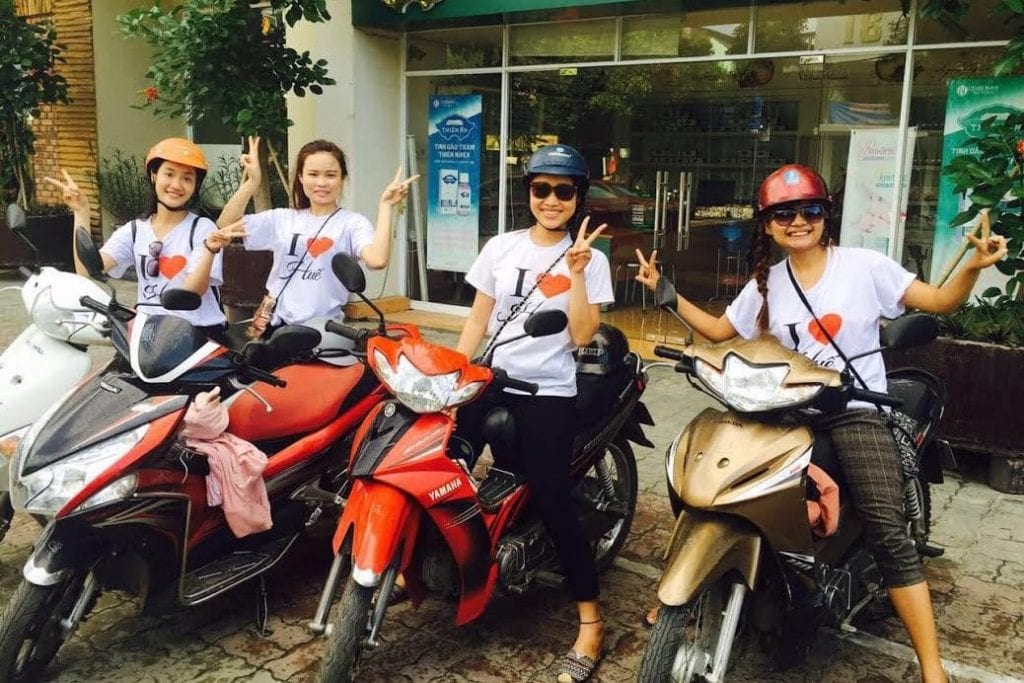Skift Take
We're not mad, but we are tired of buzzwords being used by travel companies to obscure what is really going on, which tends to be either a strategic erosion of quality for consumers, or a slow process of change to become more competitive in a certain marketplace.
Every industry has its share of buzzwords and concepts deployed to seem cool, buzzy, and on the cutting-edge. Travel is no stranger to turning to well-worn buzzwords as competitors jockey to capitalize on new iterations of the same old trends.
As we’ve remarked before, so many terms are generally awful and create a corporate-speak that actually provides a disservice to companies trying to stand out.
These are the travel industry buzzwords Skift is most tired of in 2018 and would hope to never see again in 2019. We know we will, though.
Local
When you travel, you go to a place. Therefore, everything you do there is local. Wherever you go, there you are. You can’t really “live like a local” because you are just visiting.
It’s time for travel brands to stop using the term local as a crutch instead of truly differentiating their offerings from competitors. It should also go without saying that travelers who partake in truly local activities often do so outside of the traditional tourism economy. So, enough with a luxury hotel somewhere describing itself as a part of the local community. You’re trying to make money, not build a community center.
Resilient
Destinations often have to spin stagnant visitation numbers or a slight downturn into a sign of strength. Therefore, a city becomes resilient as a catch-all, denoting the place as scrappy and focused. Cities are actually resilient because of their human capital and smart decisions made by politicians and the business community. But resilience as a narrative to protect those in a travel marketing organization is a tired trope.
Platform
Since some of the biggest tech companies in the world bill themselves as digital platforms, so too have travel companies tried to describe themselves as platforms. A hotel is a platform for experiences, a city is a platform for innovation, a car is a platform for mobility. Come on. A plane is not a platform for experience delivery; if anything it is a platform for joint stiffness and moist cheese plate delivery.
Experience
Everyone continues to be out there experiencing experiences all the time. But if everything is an experience, why are travel brands selling themselves as exactly the same as everything else? It’s fine to market a hotel as a building with rooms that are nice, not a revolutionary platform for physical-space-with-four-walls-and-a-bed delivery.
Transformative
Skift has been no stranger to dubbing elements of travel as transformative, but the term has become a catch-all for portraying a service or destination as going through a process of spirited innovation and change. There is a big difference between undergoing a period of change and a transformational shift in a product or how experiences are delivered. Save this for real change, not a new app or branding campaign.
Next-generation retailing
Why take eight syllables to say “selling?” A couple of reasons: Airlines prefer the word “retailing” to “upselling” because they don’t want consumers to know what’s actually happening. Airlines also like the word retailing because they’re jealous of retailers, such as Amazon and Lululemon, who do a much better job of selling stuff online than the carriers do.
“Next-generation” is a euphemism for “not quite as bad as before” and it refers to how the tech companies that make reservations systems for travel agencies and passenger service systems improving their software. In short, “selling” is better.
Leverage
More and more travel marketers are finding ways to leverage the word leverage in increasingly silly ways. Airlines are leveraging technology, meeting planners are leveraging city legacies, and cities are leveraging their cultural DNA. The term officially achieved buzzword status in 2018 when Hyatt chose the word Leverage as the name for its new program that gives small participating businesses a discount on room rates under certain circumstances.
Leverage has a legit use to refer to the use of borrowed money to increase the earning potential of shares of a business. So maybe that’s why some people think “leverage” sounds more upper-class somehow than workhorse word “use.” But, really it’s okay to simply use “use.”
Capacity discipline
Airlines aren’t supposed to work in sync to keep airfares high. So they have invented the euphemism “capacity discipline” to explain why they aren’t competing as assertively as they did in the past to win share on many U.S. routes.
Capacity discipline may sound virtuous, but it shouldn’t be confused with a real virtue like, say, honesty. Let’s assume airlines aren’t colluding to limit their service and drive up domestic airfares. In that case, we should describe airline behavior with clearer plain English words, such as timidity, greed, and over-cautiousness.
Enhancements
When an airline loyalty program devalues, the press release often talks about “enhancements.” It’s like someone in the PR department thinks it is opposite day.
The Daily Newsletter
Our daily coverage of the global travel industry. Written by editors and analysts from across Skift’s brands.
Have a confidential tip for Skift? Get in touch
Tags: travel
Photo credit: I Love Vietnam motorbike tours offer an opportunity for young women to develop their skills and become leaders in the tourism industry. Photo courtesy of I Love Vietnam tours. I Love Vietnam Tours
